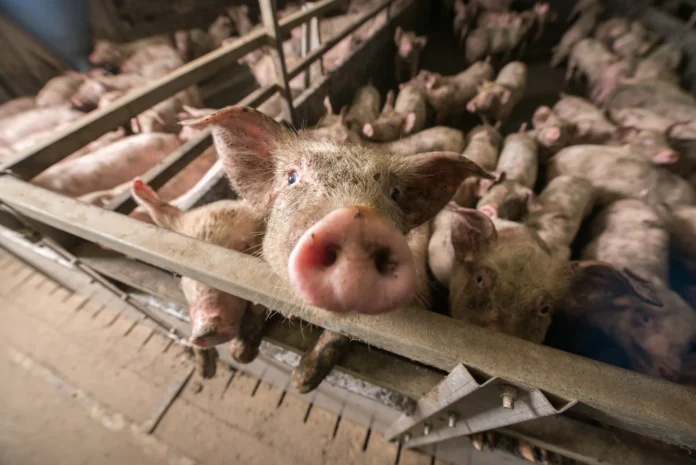African Swine Fever (ASF) has been detected in the Kohima district of Nagaland, raising concerns among authorities and local residents. The virus, which affects domestic and wild pigs, was confirmed following tests conducted on samples collected from affected pig populations in the area.
The detection of ASF has prompted swift action from the Nagaland government and veterinary officials to contain the spread of the virus and prevent further outbreaks. Measures such as culling infected pigs, disinfecting affected areas, and implementing biosecurity protocols are being undertaken to curb the transmission of the disease.
ASF is a highly contagious viral disease that poses a significant threat to pig populations and the swine industry. It can spread rapidly through direct contact with infected pigs or through contaminated feed, equipment, or clothing. The virus does not pose a risk to human health but can have devastating consequences for pig farming communities and economies.
In response to the ASF outbreak, authorities in Nagaland are urging pig farmers and livestock owners to remain vigilant and report any unusual illness or deaths among their animals. Additionally, public awareness campaigns are being conducted to educate residents about the importance of biosecurity measures and the risks associated with ASF.
Safety Measures To Be Taken
The detection of ASF in Nagaland shows the need for enhanced surveillance and disease control efforts to safeguard the region’s pig population and prevent further spread of the virus. Collaborative efforts between government agencies, veterinary experts, and local communities are essential to effectively manage and mitigate the impact of ASF outbreaks.
Efforts are also underway to strengthen biosecurity measures in pig farming operations and improve the overall resilience of the swine industry against disease threats. By taking proactive steps to address the ASF outbreak, Nagaland aims to protect its pig farming sector and ensure the health and welfare of its livestock population.
As the situation continues to evolve, authorities will remain vigilant in monitoring the spread of ASF and implementing appropriate control measures to safeguard public health and the agricultural sector in Nagaland.




